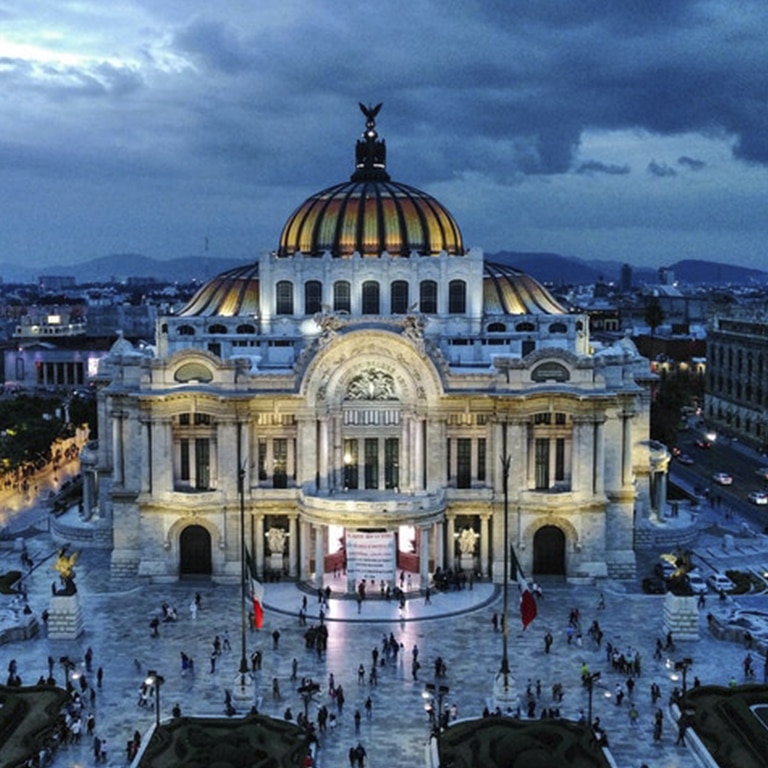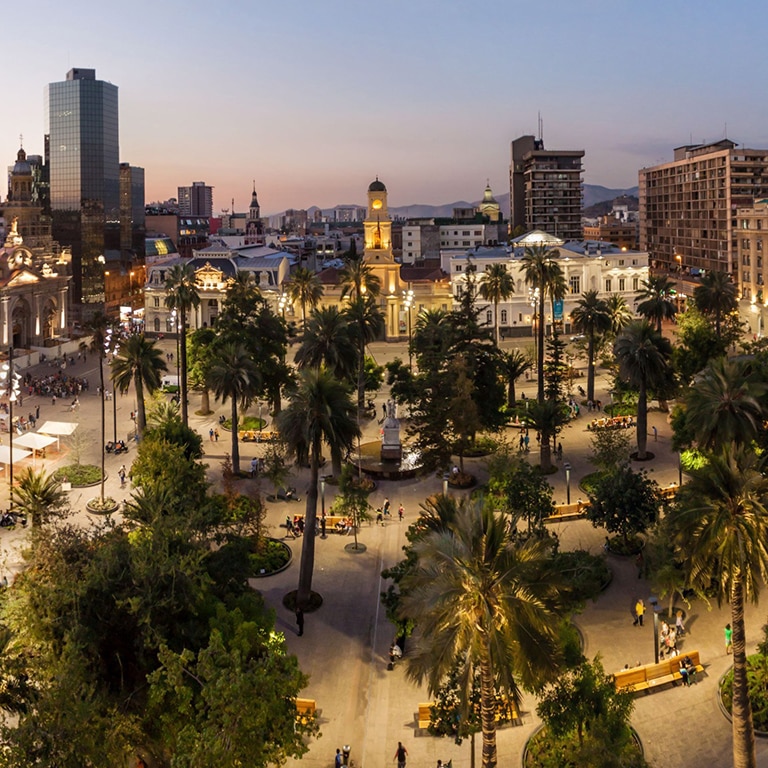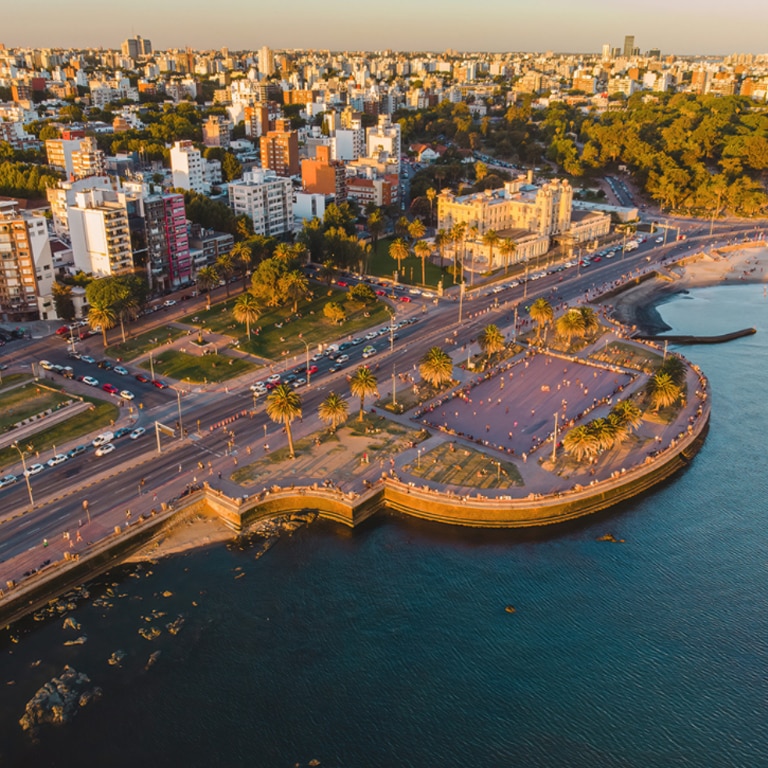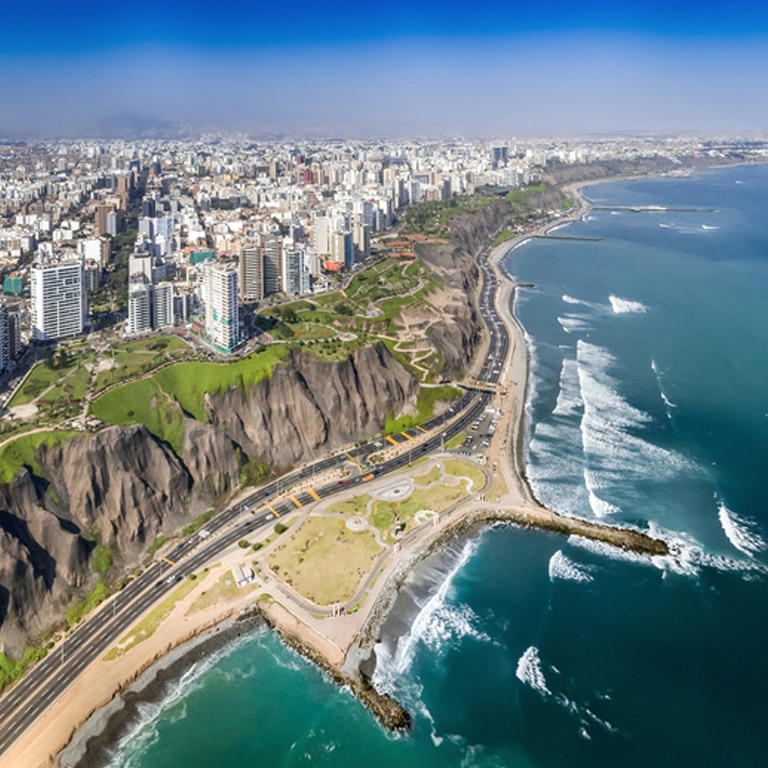Latin America's Roadmap to Innovation: the most enterprising cities
Several innovation hubs across Latin America paint a picture of a bubbling but unevenly distributed entrepreneurial landscape: Brazil's biggest city accumulates a growing number of unicorns, while Lima is trying to carve out a niche for itself. With sectors such as fintech and e-commerce leading innovation and growing support from investors, Latin America is putting on a strong show on the international stage.

Latin America has made its mark on the innovation landscape in recent years: in 2021, the region's start-ups raised a record 19.5 billion dollars in funding. That same year, 18 Latin American companies achieved unicorn status (start-ups that achieve a market value of USD 1 billion before going public). And although capital inflows have slowed in 2022, the outlook for the region remains promising.
"There are two difficult years ahead worldwide, but global capital will be available for Latin America and its entrepreneurs," says Fermín Bueno, CEO of innovation and venture capital firm Finnovista, which specialises in fintech . " In 5 to 10 years' time, the growth in investment that we have been seeing, which has been 30-40% year-on-year, will continue".
For Joe Naffah, Mexican director of BBVA Spark, "start-ups are aware that it is going to be more difficult and more expensive to access capital, and that being efficient and obtaining additional sourcesof funding is key.” Through financial support, comprehensive accompaniment and open innovation, the bank's new unit will help strengthen the local ecosystem: "We want to be an 'enabler', accompanying them and giving them access to credit, which is one of the
A well-taken opportunity
In Latin America, where 78% of the population is now using the Internet, new forms of technology can be the solution to the main challenges. "It's a huge opportunity," says Bueno, "because there are big problems that have yet to be solved and they are the fertile ground where entrepreneurs and venture capital are sowing seeds.”
“There are big problems that have yet to be solved and they are the fertile ground where entrepreneurs and venture capital are sowing seeds”
Fintech is the market leader. In 2021, it attracted almost $6 billion (39% of the total raised by start-ups in the region), and almost half of the Latin American unicorns are galloping through this sector. And in second place, e-commerce accounted for 20% of venture capital investment in 2021. And among the fastest growing sectors is edtech, which raised six times more venture capital in 2021 than in 2020.
Taking a stroll through the most prominent hubs
Entrepreneurship in the region is concentrated in countries such as Brazil and Mexico and, within these, in large cities. But this is not necessarily detrimental to other emerging hubs: "Having neighbours that attract more investment or have a greater number of start-ups benefits those of us who are close by," says Aurora Otoya, head of BBVA Open Innovation Peru. "Good ideas spread, markets expand, investors' eyes are drawn to the entire region... And it also makes us more competitive. In order to promote innovation, BBVA Open Innovation is boosting the local ecosystem by working together with start-ups, organising events and promoting trends.
“Having neighbours that attract more investment or have a greater number of start-ups makes us more competitive”
If you follow the trail of the region's most cutting-edge entrepreneurship, there are several must-see stops on the way:
São Paulo

The largest hub in Brazil and Latin America is home to no less than 12 unicorns, as well as companies that have already had successful IPOs, such as the neobank Nubank. Among the booming entrepreneurship sectors are 'fintech’ companies, with unicorns such as EBANX or Neon (supported by BBVA); and 'proptech', led by QuintoAndar and Loft. The large size of the domestic market and access to capital from giants such as SoftBank are a few of the keys behind the entrepreneurial boom in this city.
Mexico City

The Mexican capital is second in the ranking of Latin American entrepreneurial ecosystems. In a country where only 47% of the adult population has access to banking services, fintech is attracting investment and legislative interest (the Mexican government was a pioneer in passing a law on financial innovation). Four of the city's five unicorns also operate in this sector, although the largest of these is in e-commerce: Kavak, the unicorn with the highest market value in Latin America (8.7 billion).
Buenos Aires

The entrepreneurial hub already has a unicorn: the fintech company Ualá. The Buenos Aires ecosystem is the third most significant in Latin America, and accounted for 67% of the investment received by Argentine start-ups in 2021. This investment grew by more than 400% between the first half of 2020 and 2021 (from 41.5 million to USD 210 million USD), despite the economic difficulties, a sign of the resilience of the region's start-ups.
Santiago de Chile

The so-called "Chilecon Valley" managed to attract almost USD 3,000 billion in venture capital investment by 2021. The city's ecosystem for innovation, home to unicorns Betterfly and NotCo, is boosted by the support of the public administration and the state accelerator Start-Up Chile, the openness of local entrepreneurs to foreign markets and the variety of start-ups, from sectors such as agrotech to mining innovation and the ubiquitous fintech.
Bogota

Between 2019 and 2021, funding for Colombian start-ups grew by 200%. Fintech is also leading the entrepreneurial race here, driven by the rapid digitisation of the country and the support of major institutions. Bogotá has also been the birthplace of the first Colombian unicorn, the 'superapp' Rappi, valued at $5.25 billion.
Montevideo

Ranked sixth among the most entrepreneurial capitals in Latin America, Uruguay's capital shows somewhat slower but steady growth than neighbouring cities, thanks to public sector support and good cooperation between start-ups. The fintech company dLocal achieved the status of unicorn in 2020, and other start-ups in the sector such as nocnoc, Gene-Xus and Bankingly are attracting investor attention and show a promising future for Uruguayan entrepreneurship.
Lima

Entrepreneurial ecosystem in Lima is at an early stage, waiting for a unicorn (although Crehana is on track to become the first). While the capacity for innovation among local entrepreneurs and the growing support of investors are driving the ecosystem, start-ups are demanding more public support and targeted regulation.
A question of will
Local entrepreneurs do not seem to be willing to let the opportunities offered by innovation slip away. "Resilience is what most characterises them," says Aurora Otoya, head of BBVA Innovation Peru. "Our day-to-day life is marked by very turbulent political and economic contexts, but Latin American entrepreneurs see the opportunities in difficult times. They have the vision to solve real problems in the midst of chaos."
Joe Naffah, head of BBVA Spark in Mexico, is also optimistic about the pulse of innovation in the region. "Latin American entrepreneurs are daring. They are not fearful of anything; they are willing to challenge and innovate." With their perseverance and ability to adapt, Latin American start-ups seem ready to overcome national, regional and even global socioeconomic ups and downs and put the pedal to the metal on the path to innovation.